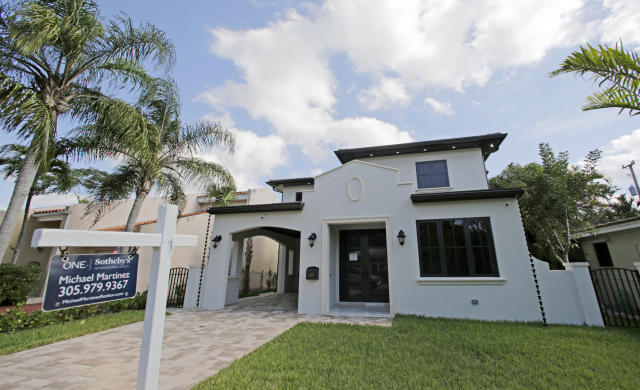Florida law limiting foreign real estate investors 'borders on redlining'

Views (77)

The bill bans citizens from Cuba, Venezuela, Iran, Russia, China, North Korea and Syria from purchasing agricultural land and certain properties in the state.
Certain foreign nationals will find it harder to purchase a home or land in Florida after a new state law went into effect this month, a move that experts worry could set a discriminatory precedent.
Chinese citizens who buy land in restricted zones would face the harshest penalties versus other groups.
The law is "too broad," Luis Padilla, CEO of Oceanside Realty & Investment Inc./ Padilla Team in Florida, told Yahoo Finance.
"In my opinion it's more of a political statement versus a real estate play. To say citizens from certain countries can’t purchase within 20 miles of an airport, I think it’s a little bit beyond the real estate practitioner's pay grade to really be playing national security agents," Padilla added. "As a realtor, I think it’s a law that hurts and borders on redlining citizens just because of their ethnicity or citizenship. If I have to be on one side, I’m not for it."
The plaintiffs are represented by the American Civil Liberties Union, ACLU of Florida, DeHeng Law Offices PC, and the Asian American Legal Defense and Education Fund, in coordination with the Chinese American Legal Defense Alliance.
According to the ACLU, the new law "recalls similar efforts over the past century to weaponize false claims of national security" against Asian immigrants and other marginalized communities. Advocates further noted that politicians across the US used similar tactics to pass "alien land laws" in the early 1900s, which barred Chinese and Japanese immigrants from becoming landowners.
The policies worsened violence and discrimination against Asian communities in the US, the ACLU wrote in a statement. These laws have since been repealed by state legislatures because they violated the Constitution's equal protection guarantees.
Commissioner Wilton Simpson added that the new law — which would ban certain foreign nationals from purchasing agricultural land — would "ensure Floridians have access to safe, affordable, and abundant food supply."
The law would "codify and expand housing discrimination against people of Asian descent in violation of the Constitution and the Fair Housing Act," ACLU of Florida said in a news release. "It will also cast an undue burden of suspicion on anyone seeking to buy property whose name sounds remotely Asian, Russian, Iranian, Cuban, Venezuelan, or Syrian."
The law could also slow real estate investment in the state.
Other top destinations for foreign buyers included California, Texas, Arizona, New York, and North Carolina, the analysis revealed.
Under the law, which went into effect July 1, those who purchased or are looking to purchase in certain zones could face severe penalties or fines. According to the bill, Chinese people who purchase property in restricted areas could face felony charges, whereas those from other nations could face a misdemeanor penalty for buyers and sellers.
Those who already own property in restricted areas also must register with the state or face fines of up to $1,000 per day. If owners don’t comply, their property or land could be seized, lawmakers said.
"The new law (SB 264) still has elements of it that have yet to be determined," Marla Martin, senior media relations and communications manager for Florida Realtors, told Yahoo Finance. "The Florida Real Estate Commission (FREC), Department of Agriculture and Consumer Services (DACS), and the Department of Economic Opportunity (DEO) are required to implement specific portions of the bill."
"Until FREC creates an affidavit for statewide use, buyers should expect to sign an affidavit provided by their closing agent," the group said.
Also not available is an easy way to determine if a property is subject to the law. There is no official list or map of military installations or other way to figure out if a property is near critical infrastructure, Florida Realtors said.
"So much is still unknown currently," Marin said, "any comments would be speculative."
0 Likes
